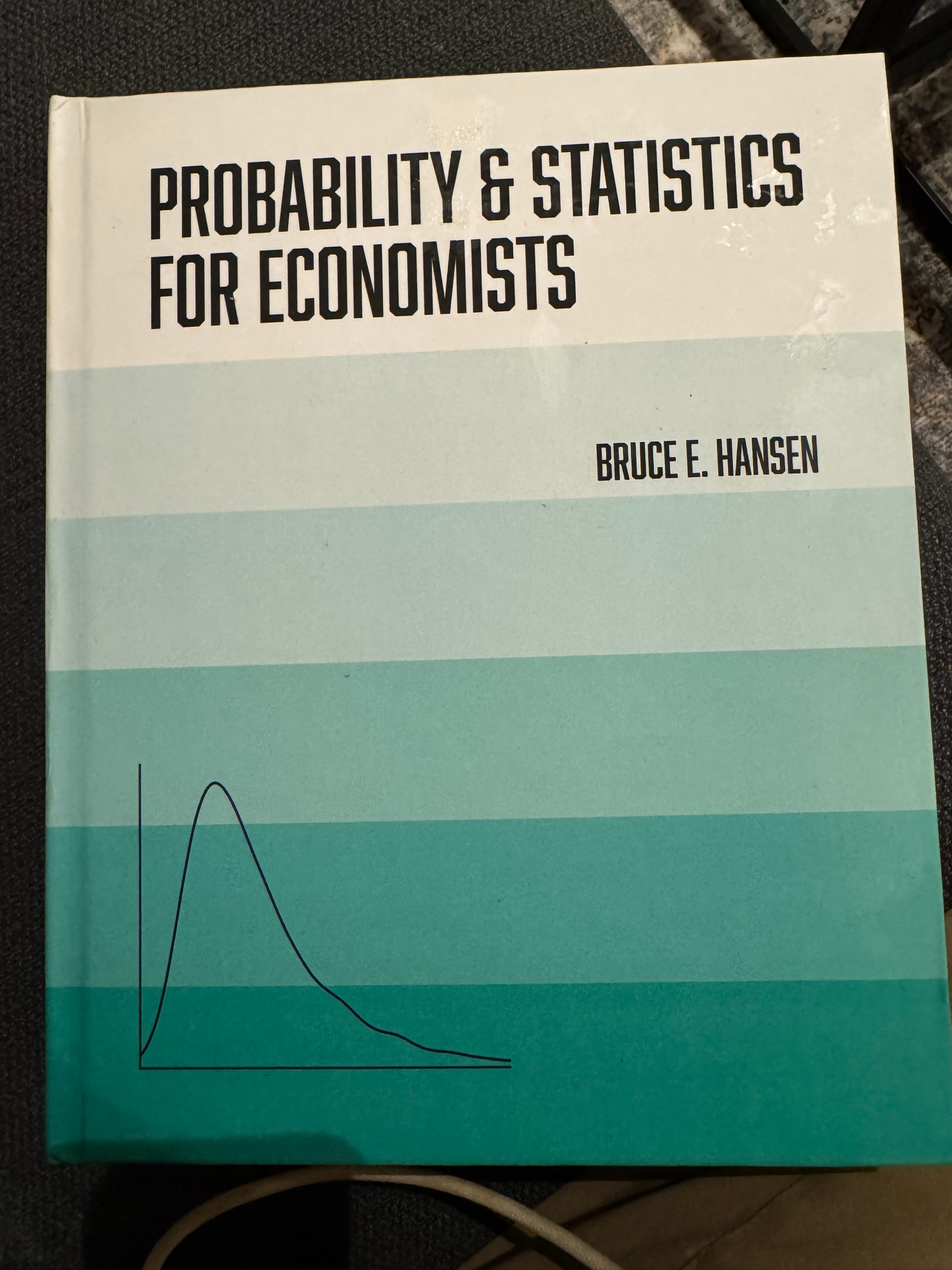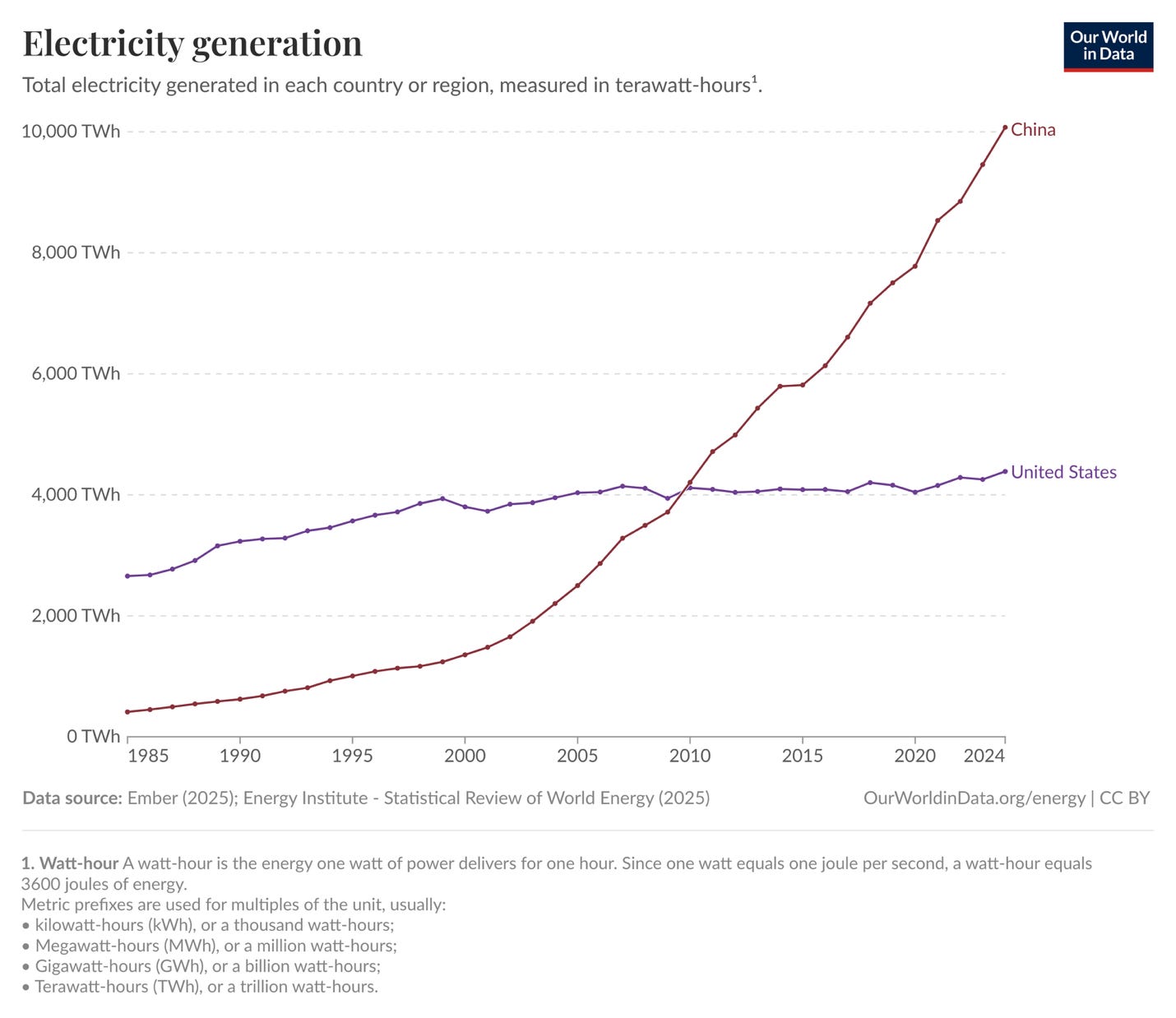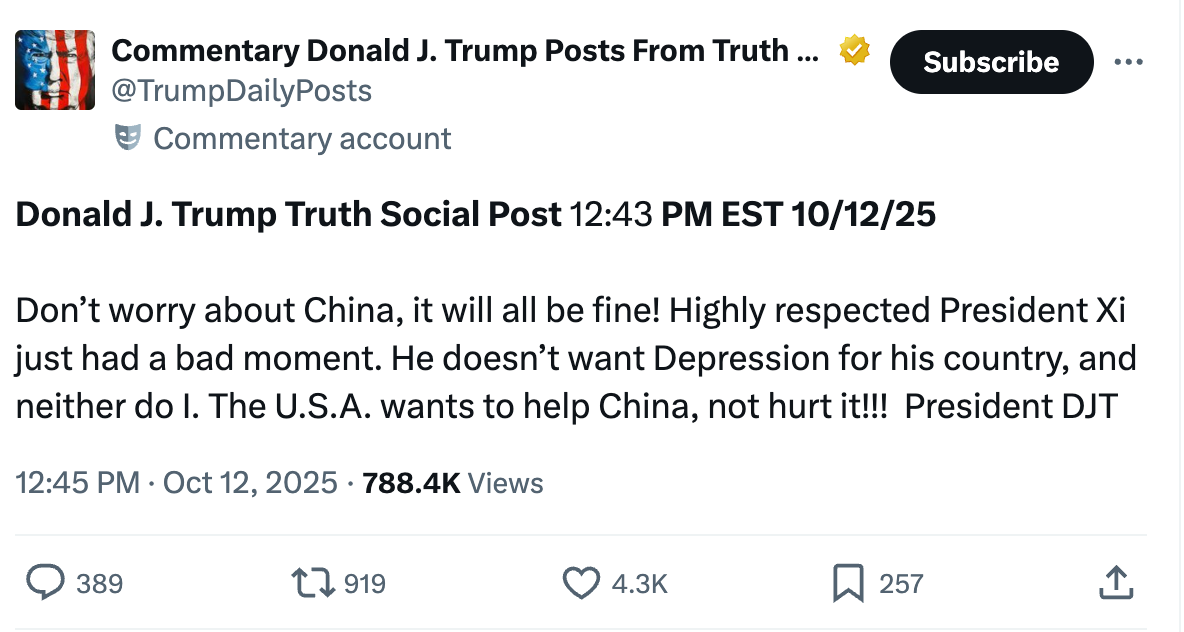
901. At least five interesting things: No, You're Wrong edition (#70)
Noah Smith critiques pessimistic views on climate change and economic decline, arguing that technological advancements and historical context provide a more balanced perspective.
your daily dose of economic commentary

Noah Smith critiques pessimistic views on climate change and economic decline, arguing that technological advancements and historical context provide a more balanced perspective.
An argument that economic history integrates rigorous analysis with theory, highlighting the distinction between Smithian and Schumpeterian growth and the importance of innovation and knowledge.

Maria Aspan discusses how certain companies are covering health insurance premiums for their employees amid rising costs in the U.S.

An argument that the upcoming Virginia gubernatorial election may be influenced by a government shutdown and a scandal involving the attorney general's race.
Tyler Cowen discusses the implications of generative AI on free speech and the potential challenges posed by government regulations on AI-generated content.

The post discusses upcoming workshops on causal inference and machine learning, highlighting their importance for students and professionals in various fields, particularly industrial organization and government.

Alex Tabarrok argues that capitalism and democracy are compatible and mutually reinforcing, supported by empirical evidence and historical examples.

An argument that free trade enhances dynamic efficiency, fostering innovation and economic growth, while protectionism stifles progress and undermines societal prosperity.

Paul Krugman discusses how China's economic power has surpassed that of the U.S., criticizing the Trump administration's detrimental policies on science and renewable energy.
Robert Vienneau discusses the labor theory of value and its application to price determination in specific economic contexts.

Andrea Hsu discusses federal employee layoffs and the unions' request for judicial intervention amid the government shutdown.

A lawsuit regarding Tesla's compensation package for Elon Musk is being reviewed by the Delaware Supreme Court.

Rachel Treisman explores the historical origins of the term 'broadcasting' from agriculture to its adoption in media, particularly radio.

An argument that the diminishing interest rate gap between US Treasury bonds and corporate AAA-rated bonds raises concerns about the perceived safety of Treasury debt.

The post discusses various stories related to economic principles, including laws affecting streaming services, AI in government reports, gold prices, and college sports buyouts.

Kevin Corcoran explores how intuitions shape worldviews and public policy perspectives, particularly through the lens of economic regulations like "click-to-cancel."
The discussion centers on the complexities and potential dangers of advancing AI technologies, emphasizing the need for awareness and responsibility in their development.

An argument that cryptocurrency's value is increasingly tied to political support, particularly from Trump, and its recent crash reflects political rather than economic factors.

Noah Smith discusses the Nobel Prize in Economics, focusing on the winners' research about competition, innovation, and their implications for economic growth.

The post discusses the significance of the 2025 Nobel Prize in economics awarded for insights into the relationship between technology and economic growth.